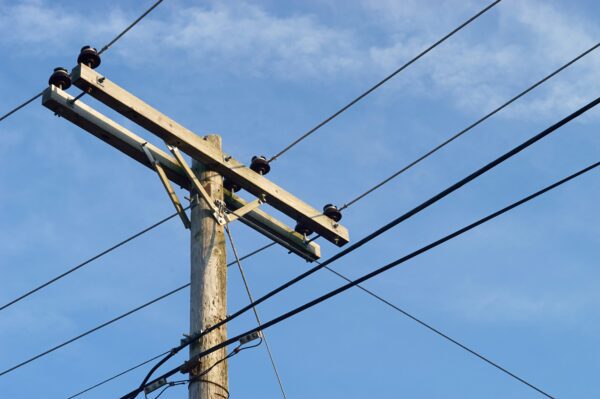Orange County supervisors voted 3-2 Tuesday to withdraw from a new power authority agency just a few months after joining it and nine months since the fledgling agency started serving its first cities in the county.
The withdrawal comes following two audits of the agency that were critical of its operations.
Board of Supervisors Chairman Doug Chaffee and Supervisor Lisa Bartlett sponsored the move to withdraw with Supervisor Katrina Foley joining them in the vote Tuesday. Board Vice Chairman Don Wagner and Supervisor Andrew Do voted no and argued to stay in the authority.
The agency also serves Buena Park, Fullerton, Huntington Beach and Irvine.
“I’m a resident of Fullerton, which is one of the cities that’s a member of the power authority and I also have solar panels on my roof, so I opted out,” Chaffee said. “My solar panels generate more power than I use, but when I opted out I found it a very difficult process.”
Residents and businesses are automatically put into the authority, but can opt out.
“We’re putting people into the deal with the option to opt out, which is very difficult to do,” Chaffee said.
Chaffee recalled having to call the authority and then hearing a “canned speech” about “cheaper rates than (Southern California Edison), which is a clear misrepresentation,” Chaffee said.
Bartlett noted she voted against joining the authority in October.
“I had major concerns joining the power authority,” Bartlett said. “I thought it was premature. … I had hoped my concerns were unwarranted, but, unfortunately they’ve been heightened.”
Bartlett criticized the authority for a “lack of transparency and sharing information with the public.”
She also said the staff appeared to “lack experience” and the agency had been dinged in audits for not following the industry’s best practices.
Bartlett noted customers were opting out more than twice as much as anticipated and three times the rate of the state average for Community Choice Aggregations like the power authority.
Wagner, who is on the authority’s board, defended the agency while acknowledging the criticisms of the audits.
“I do believe the concerns identified by the audits are substantial,” Wagner said. “And other audits are being done that we don’t have the results for yet. … But it is premature after six months and a deluge of press reports but no harm to a single constituent because they’re not online yet.”
Wagner said the agency is “grappling with growing pains … grappling with issues as a start-up in a very complicated environment. … But CCAs can be effective and have been effective across the state.”
Wagner said it was “way too early to pull the plug on an agency that has demonstrated its financial viability … with quirks and things to fix, no question, but openness and transparency is fixable.”
Do blamed the problems with the authority on management and warned against using audits as “a weapon.”
“Let’s not abuse the process and weaponize it for a conclusion we already had in mind,” Do said. “It is still a viable entity that can still deliver on its objectives.”
Foley grilled the power authority’s CEO Brian Probolsky on whether the agency would release some of the information the county had requested.
“We get a little bit of information but not all of it and the transparency issue is very important,” Foley said.
When Foley asked Probolsky to identify issues raised in the audits that he disagreed with he struggled to respond, saying he didn’t have a copy of them in front of him.
“While I disagree with some of the findings I don’t think they’re unreasonable,” Probolsky said.
Wagner warned against withdrawing, saying it will put “our constituents at risk.”
Wagner quoted Foley’s website on her commitment to developing more green energy and sustainability in the county.
“But I don’t know that this does that,” Foley replied.
The state developed the CCAs in part to encourage more green energy.
“This is our only opportunity to provide that clean energy,” Wagner said. “If we pull the plug and this agency craters our constituents are at risk. No one will want to come near this smoking crater for ages. … It’s too early to throw this baby out with the bath water.”
Bartlett said she believes there are “other options out there.”
Foley said it was “one of the most difficult votes I’ve had since I joined the board.”
She added she “fully supports the concept of CCAs,” and has proposed discussing in January the possibility of joining another power authority that “is already established.”
In closed session Tuesday, the supervisors voted to file a public records act lawsuit against the power authority to “obtain unredacted Power Purchase Agreements and related public documents from the OC Power Authority” and to issue a “legislative subpoena” to get the documents. The board also left open the option to sue to enforce the subpoena.
The county’s Internal Audit Department on Dec. 14 issued a report saying the agency “did not provide us the documentation necessary to evaluate whether controls over the disbursements and human resources processes were adequate.”
The authority also could not provide a specific cost for withdrawing from the agency, according to the audit. But the authority estimated it could be up to $65 million.
The Board of Supervisors commissioned another report in August when it was proposed the county withdraw from the Joint Powers Authority establishing it.
Local Power LLC of Massachusetts conducted the report for Board of Supervisors. The company reviewed the authority from September to mid-November.
The authority projected 8.5% of its customers would opt out, but the rate is at 16.5%, according to the report.
The report also found that the “agency’s launch brought rate increases above” Southern California Edison “in its default products to both its commercial customers and its residential customers.”
Local Power faulted the authority for failing to use “best practices in developing and administering communication materials to customers about rates and opt-out notifications.”
Local Power also found that most of the authority’s staff lack “expertise” needed and that “job roles and responsibilities of staff are commingles with multiple other roles, which are not necessarily in line with (industry) best practices.”
The authority “relies heavily on external contractors for industry expertise” when it is considered better to develop that in-house, according to the report.
The Local Power report also noted that “ongoing media coverage and audits calling into question the operations and management” of the authority heightens the risk of more customers opting out. Community Choice Aggregation authorities are designed to increase the use of renewable energy and to scale up to reduce costs, according to the report.
Officials with the authority, however, argue that Edison is poised to seek a substantial rate increase in January, which would keep the authority’s rates competitive, according to the report.
The authority was criticized in the report for not making it clearer to customers how to opt out of its service and how to make an informed decision. Customers are not given a clear enough picture about rates or renewables levels, the report said.







